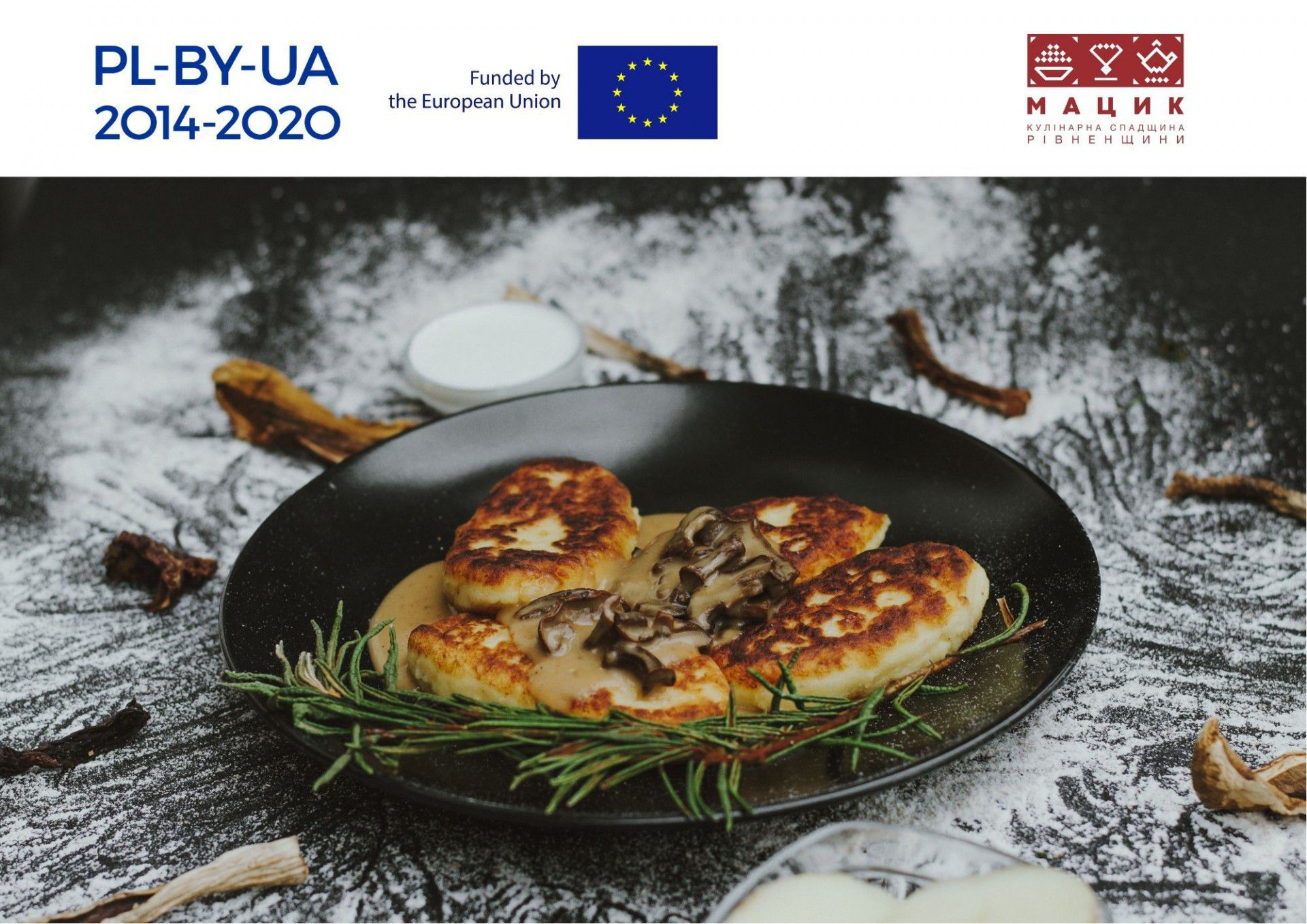Gifts of Polissya forest are a source of traditions and rites of Rivne region
A series of publications about the culinary expeditions of the NGO "Agency for Sustainable Development of the City", which promote the culinary traditions and intangible heritage of Rivne and Rivne region. The article preserves the dialect of the region and the live language.
In order to preserve and promote the traditional culinary heritage of Rivne and Rivne region, in 2020 the international project "Cultural heritage of the cuisine - the promotion of culinary traditions through the professionalization of the gastronomic offer of Lublin and Rivne" was launched by the Executive Committee NGO "Agency for Sustainable Development of the City" together with the Government of the City of Lublin. The project is implemented with the financial support of the European Union under the cross-border cooperation program "Poland-Belarus-Ukraine 2014-2020".
.png) From ancient times until today, residents of the villages of Rokytne, Dubrovytsia, Zarichne and Sarny districts of Rivne region are engaged in gathering and housing at the expense of forest gifts. Here berries are collected and fermented, soaked, dried: blueberries, cranberries, raspberries, blackberries, viburnum, as well as rotten pears and sour apples. More than in other regions of Ukraine, mushrooms are collected (white mushroom is considered a mushroom here), honey agarics, Polish and others.
From ancient times until today, residents of the villages of Rokytne, Dubrovytsia, Zarichne and Sarny districts of Rivne region are engaged in gathering and housing at the expense of forest gifts. Here berries are collected and fermented, soaked, dried: blueberries, cranberries, raspberries, blackberries, viburnum, as well as rotten pears and sour apples. More than in other regions of Ukraine, mushrooms are collected (white mushroom is considered a mushroom here), honey agarics, Polish and others.
.png)
Berries are an integral part of the preparation of various types of jams and juices, and mushrooms have always been added to first courses. For example, cranberry juice has been daily drink for centuries for parents, blueberry jam or cones tasted like traditional dishes from the furnace - pancakes (mlyntsy).
.png)
Mushrooms, whether dried or fried, are an integral part of the dish in Polissya cuisine: green borscht with mushrooms and matsyk , potravka with ribs and mushrooms, sour borscht with mushrooms and sauerkraut, potatoes with mushrooms, chicken mutton with mushrooms, cold borscht with mushrooms and fish... As you can see, mushrooms are one of the main components of traditional regional cuisine. From today all frequent traditional regional cuisine can be found in restaurants of Rivne and the region, which are truly exciting for guests and tourists.
Traditions and rites of Polissya
In the north of Polissya there is a long tradition of using age-old trees that have been growing in the Rivne region for thousands of years. Each tree has its own history, legend and traditions of local appreciation.
Not far from the village of Glynne, Rokitniv district, on the territory of the natural monument - the tract "Yuzefinska Dacha", grows a botanical monument of nature, the oldest oak in Ukraine - Yuzefinskiy oak. He is more than 1350 years old, which is why he is in a list of Natural Wonders of Ukraine. The people call this oak the Oak of Prince Igor. Legend says that it was one of those oaks, where the Drevlians killed the prince for a high tax, tied him to the branches of two oaks and hung him off. Since then, the surrounding oaks are considered the place of his death. But at the same time, there is an interesting belief that in order for children to have a family, each family must hug a tree.
.png)
There is also a seven-hundred-year-old pine in the village of Vezhytsia, Rokytne district. It is called the Tsar-tree and every year on Makova the rite of "obrok" is performed, bringing to this tree as gift thickets, ribbons, towels, candles. In ancient times, this place was represented by its eastern sacred ensemble, the centre of which was a tree, near which there was a spring with healing water, and later there was a wooden chapel. The people of Vezhych believe that the Tsar-tree protects the village from lightning, thunder, helps childless women, sick children were brought here, mothers whose sons went to the army arrived.
.png)
The project is implemented with the financial support of the European Union under the Сross-border cooperation program "Poland-Belarus-Ukraine 2014-2020".
The content is the sole responsibility of the NGO "Agency for Sustainable Development of the City", and under no circumstances can be regarded as reflecting the position of the European Union.
Photographer Anton Trofimchuk
